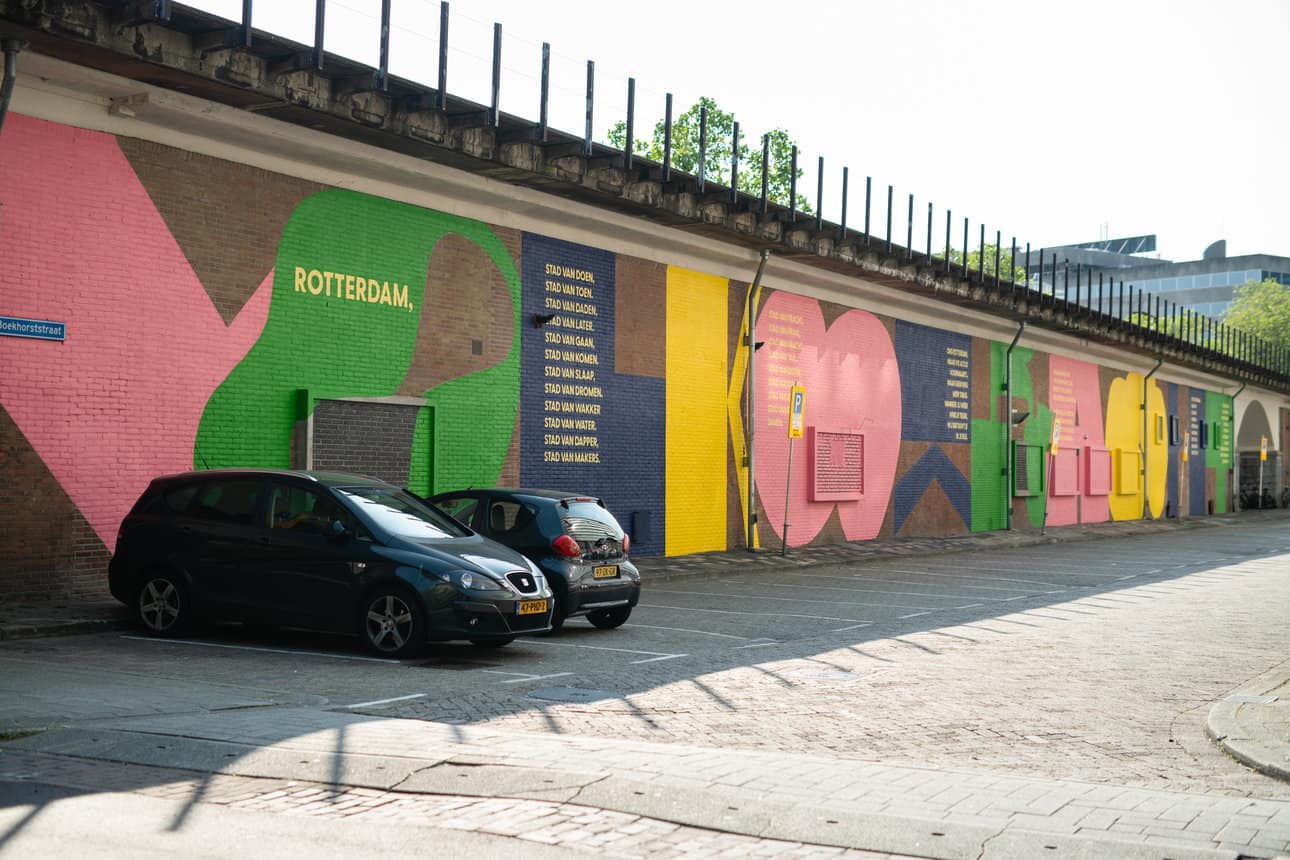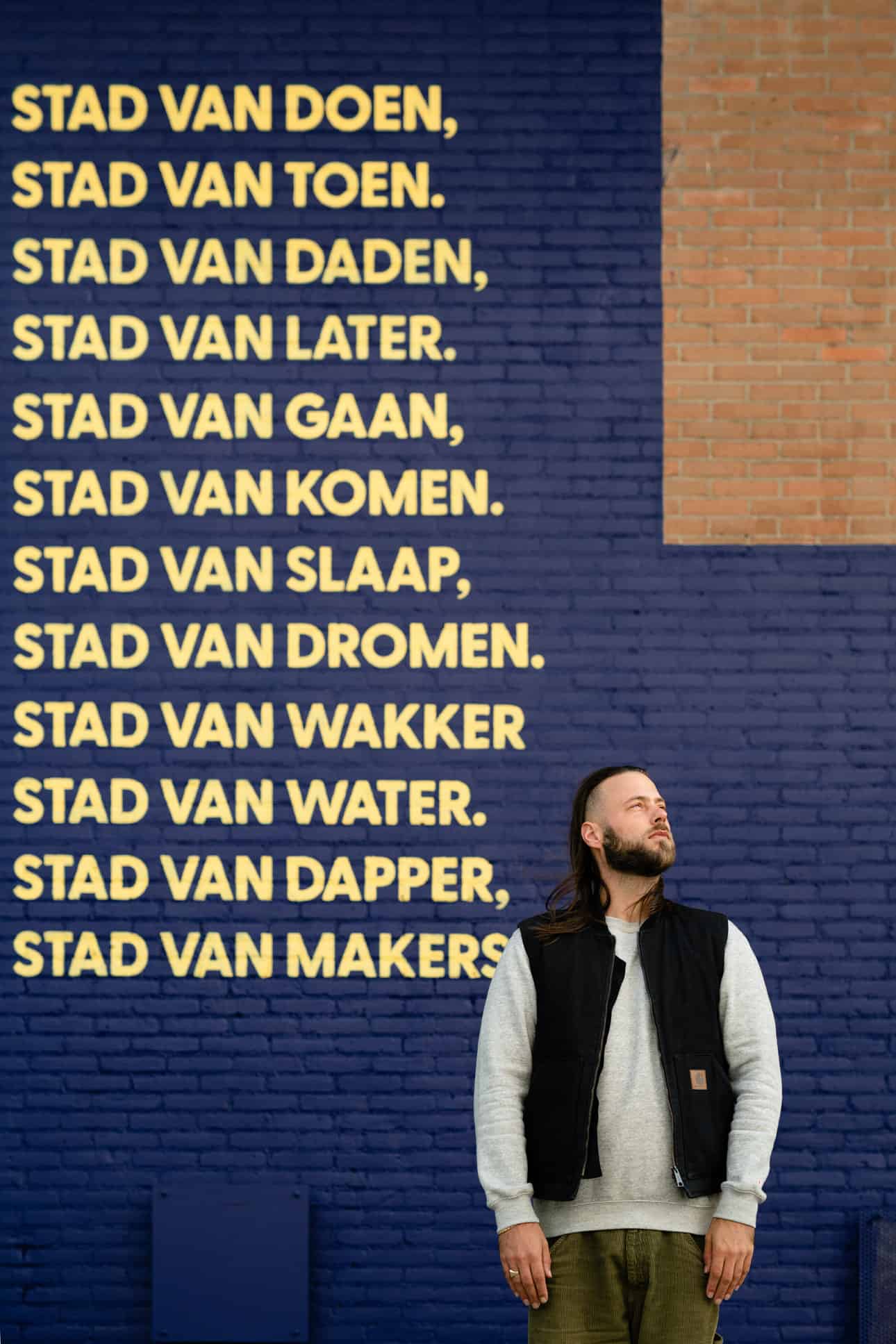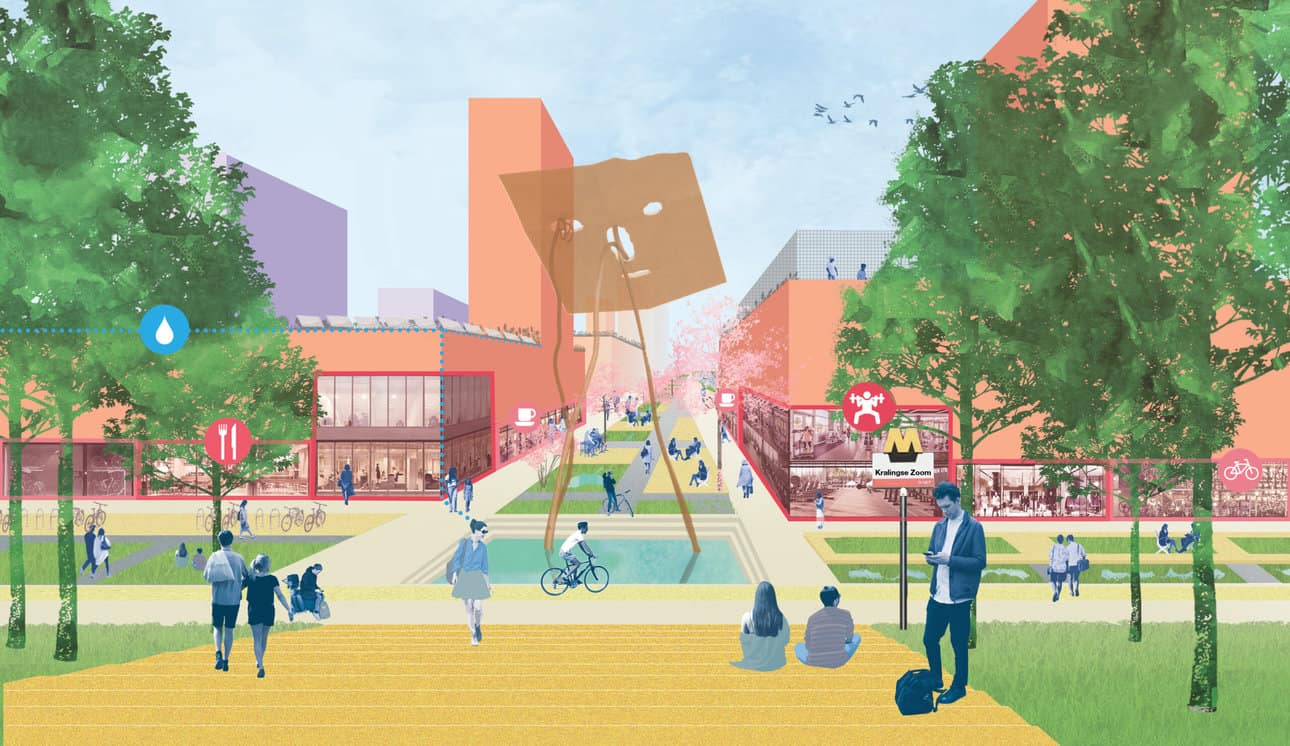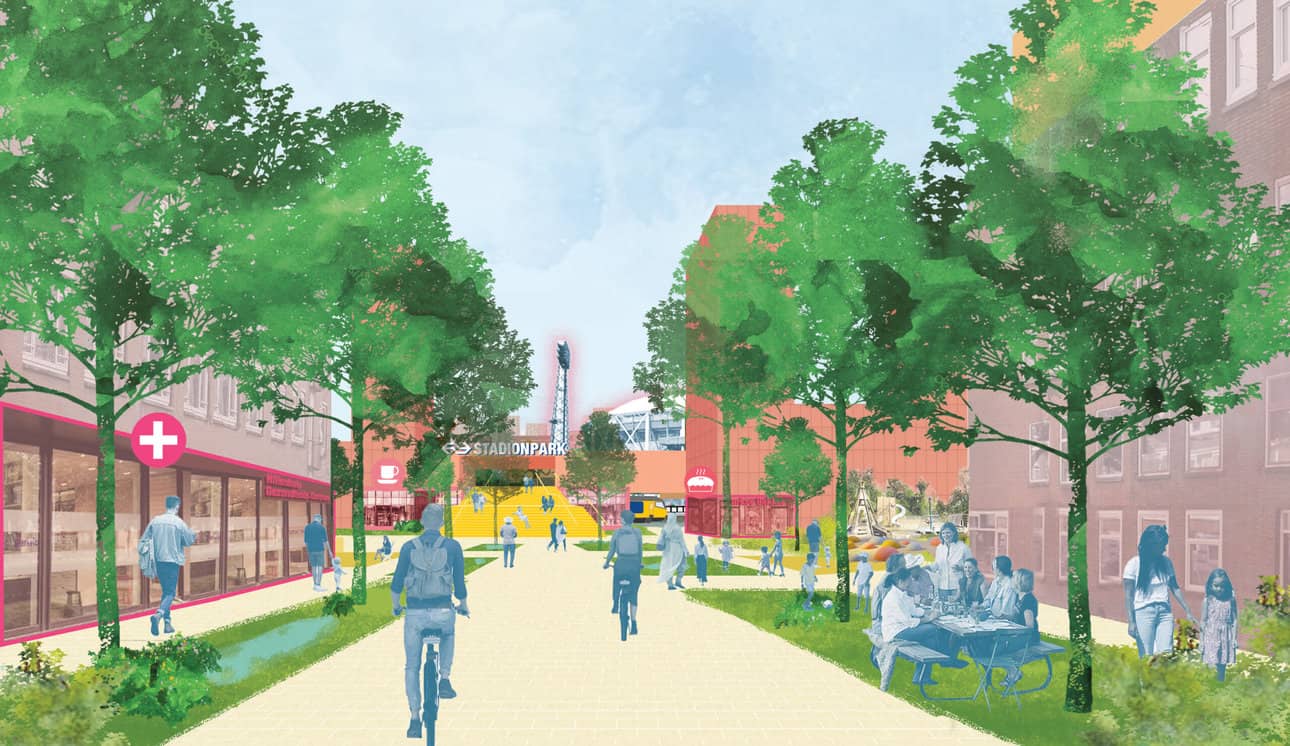ROTTERDAM, 14 June 2023 – A new era beckons for Rotterdam's Ommoord district as a sustainable, mixed-use development named Romeynshof is set to reshape the local landscape and community experience.
Development agreement of Romeynshof signed
The development agreement for Romeynshof, a Paris Proof project, was signed by AM, an area developer, and the municipality of Rotterdam on 14 June 2023 at the Provada real estate fair in Amsterdam. This agreement marks a significant milestone in the realisation of the Romeynshof project, which will see the transformation of an existing cultural and health centre into a resilient area development.
The vision behind Romeynshof
The Romeynshof project, known by its working title 'Populus', is a novel initiative that combines a cultural district and health centre with 200 rental and purchase homes, a considerable portion of which fall in the middle segment in terms of affordability. The development also includes a library, an SKVR (Centre for Art and Culture Activities), a Centrum Jeugd en Gezin, and the ERGO research centre, in addition to new housing for Stichting Zonboog's health centre.
In the forthcoming period, the project will be further developed with future users and residents towards a final design.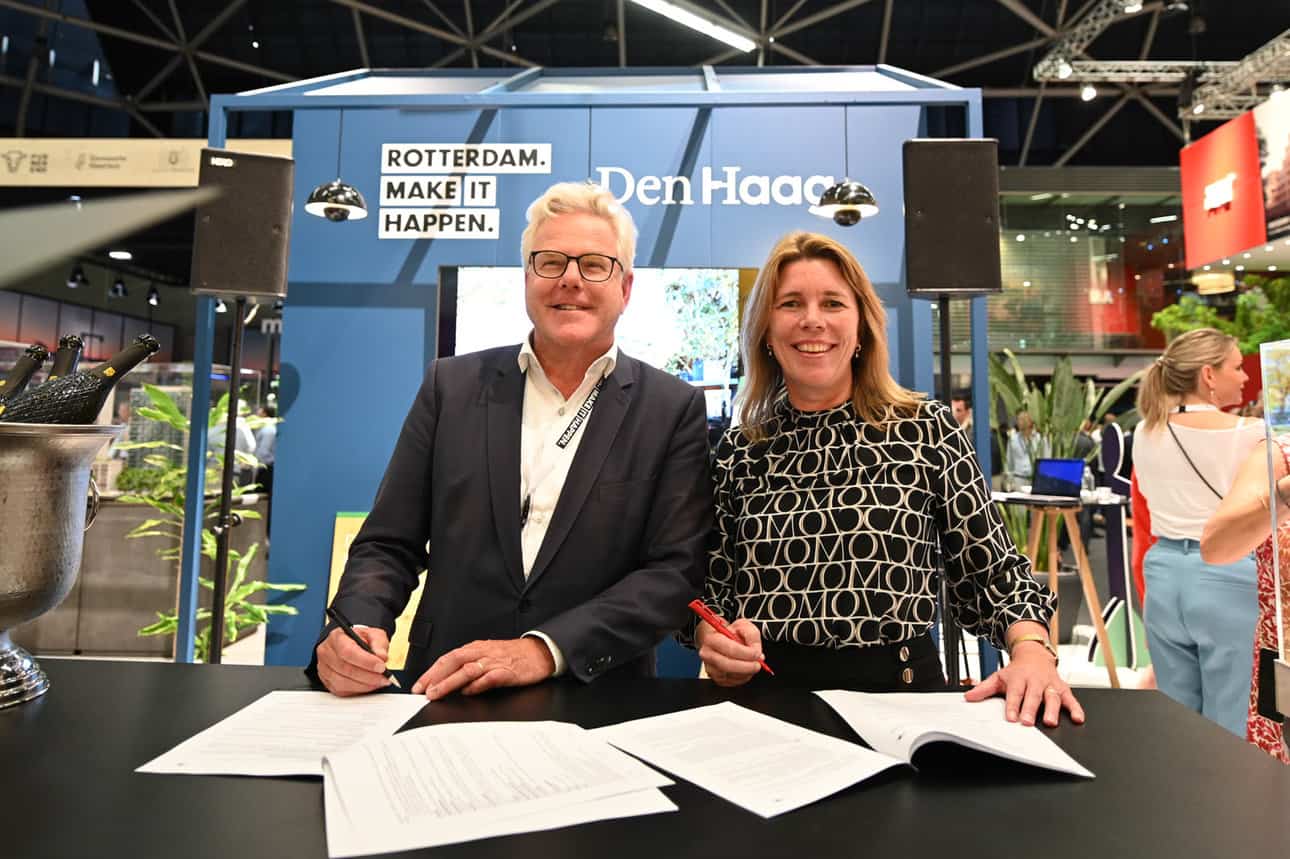 Photo: Jos Melchers, Director of Area Development (Municipality of Rotterdam), Annemarie Jol, Director of Development (AM).
Photo: Jos Melchers, Director of Area Development (Municipality of Rotterdam), Annemarie Jol, Director of Development (AM).
Embracing sustainability
The project fully aligns with the objectives of Paris Proof, with all 200 homes planned to be built using wood. The design of the four buildings included in the project comes from LEVS Architects, with an emphasis on connecting the various social and health functions with the housing units. BAM Wonen is scheduled to handle the project's realisation, set to commence in the first quarter of 2025.
Populus: the green heart of Ommoord
Populus, a name derived from the old poplar tree situated at the centre of the development, is poised to become the green and social heart of the Ommoord district in Rotterdam. The urban design is inspired by the former polder structure and seamlessly blends into the post-war high-rise ensemble designed by the renowned urban designer Lotte Stam-Beese. A significant area adjacent to the metro line will be designed as an ecological linear park connecting to the main park structure of Ommoord. This ecological, water-rich zone extends into the core of Populus, creating a vibrant space for everyone.
Location and Directions
Populus is conveniently located next to the Romeynshof metro station, making it easily accessible for residents and visitors alike. The Ommoord district is known for its green spaces and community-focused amenities, adding to the appeal of this new development.
.
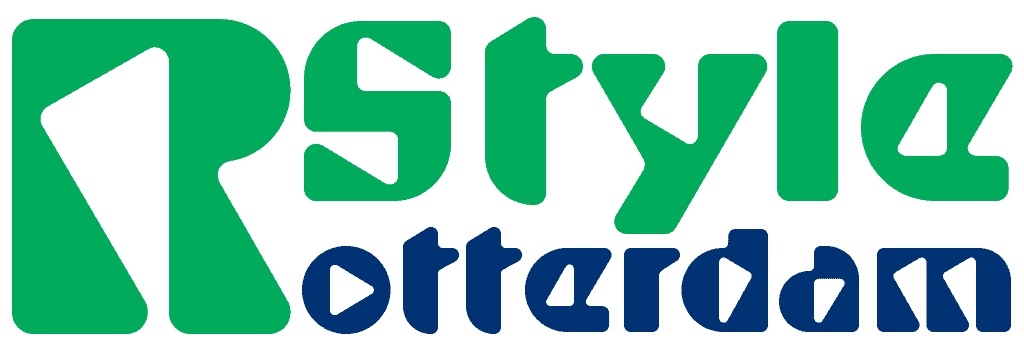

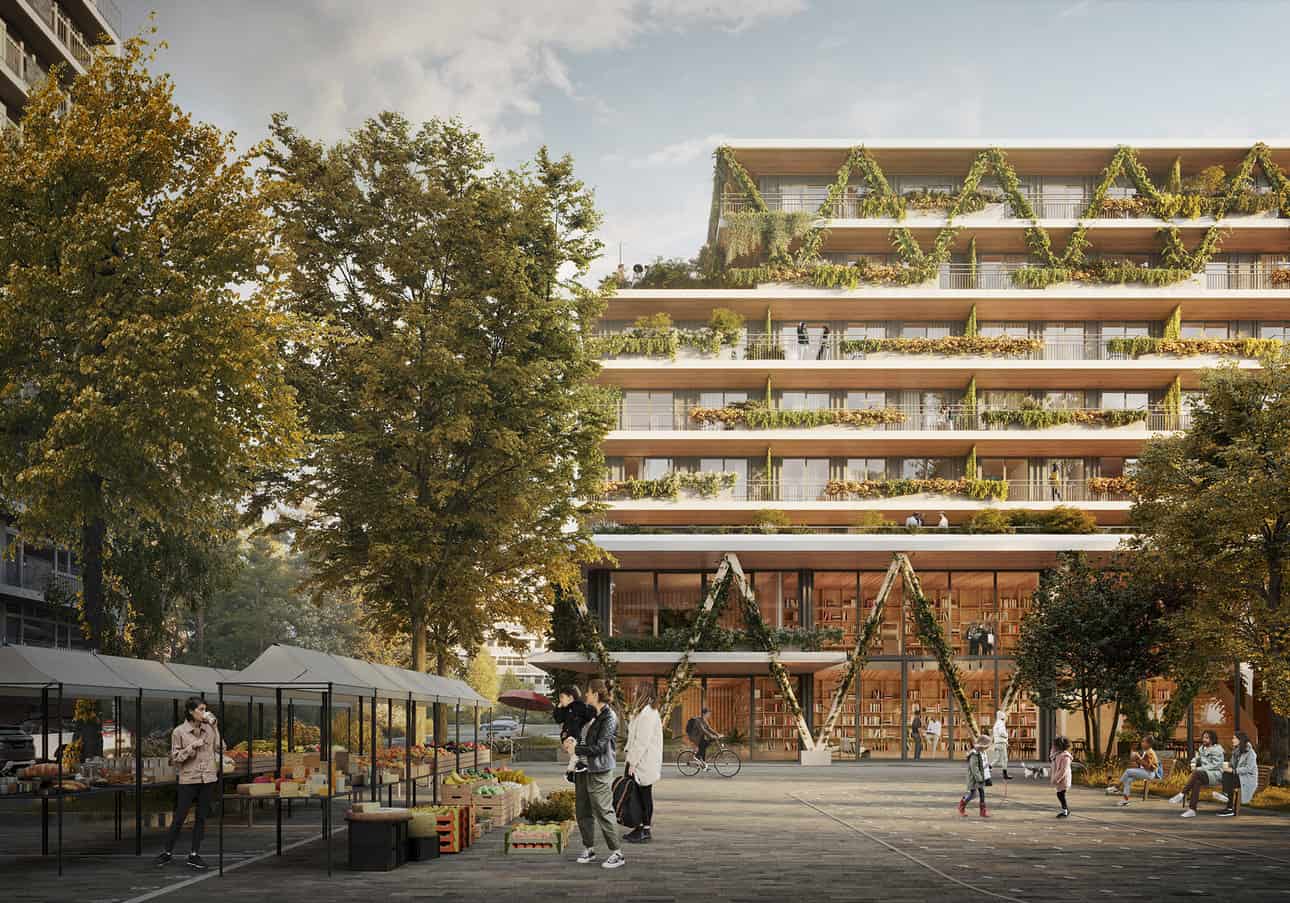
2.jpg)
1.jpg)
